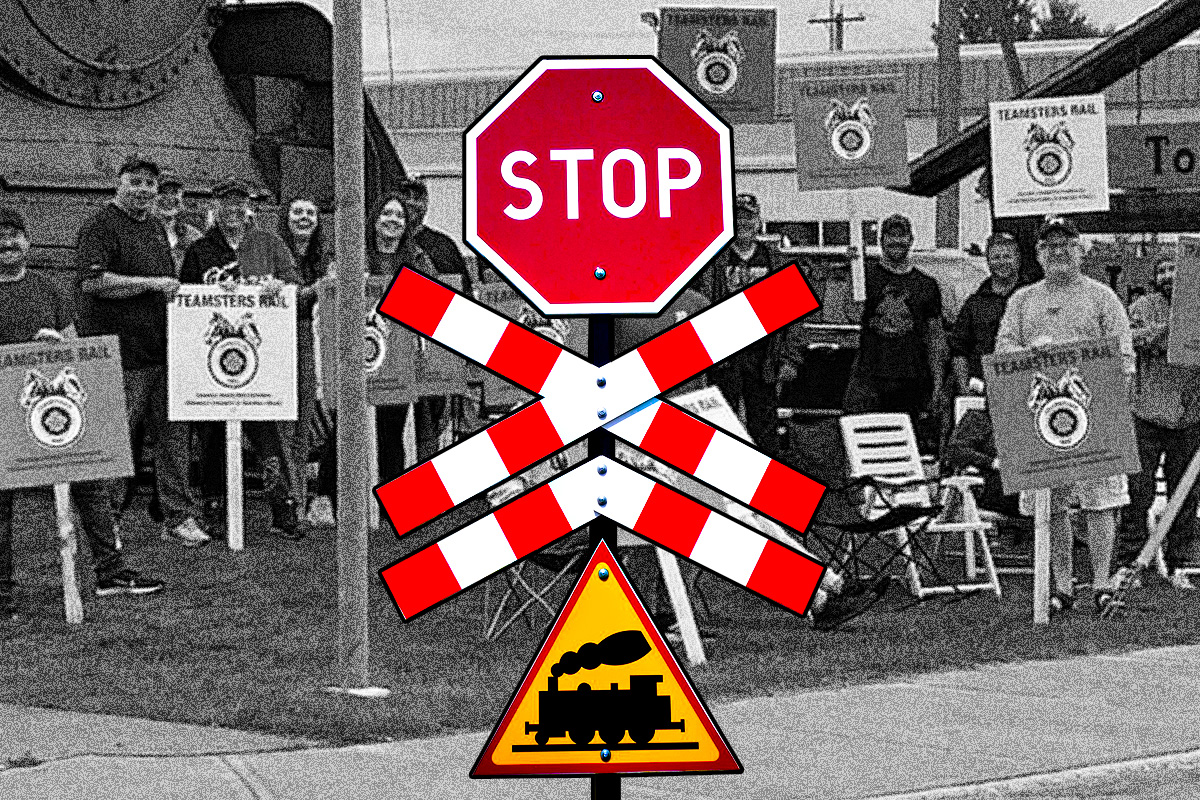
“It signals to corporate Canada that large companies need only stop their operations for a few hours, inflict short-term economic pain and the federal government will step in to break a union.”
Such were the words of Paul Boucher, president of the Teamsters Canada Rail Conference, after the Canada Industrial Relations Board (CIRB) imposed binding arbitration for the dispute between the railway workers of CN and CPKC and their bosses on Aug. 24.
On Thursday Aug. 22, the CN and CPKC had locked out their 9,300 workers. In their insatiable quest for profits, the railway bosses are trying to impose longer hours as well as cuts in working conditions and work-family balance. In response, the workers set up picket lines.
But considering how much the country’s economy depends on the railway for freight, this lockout amounted to putting a gun to the governments’ head.
That’s why the Liberals ordered the CIRB to impose binding arbitration. And while the Liberals tried to wash their hands of the decision by punting it to a so-called “independent” tribunal, make no mistake: the CIRB was only following government orders. The CIRB chair explained that it had “no discretion or ability to refuse to implement, in whole or in part, the minister’s directions.”
With this, the workers have effectively been deprived of their democratic right to strike. While in the past the Liberals would have simply imposed back-to-work legislation, this time, they merely chose a more convoluted route.
This is because the Liberals are playing a delicate balancing act. As a capitalist party, they must legislate in favour of the bourgeoisie. The only problem is that this inevitably angers the working class. As the Liberals have plummeted in the polls and labour militancy is on the rise, the Liberals have been trying to have their cake and eat it too—to please both the workers and the bosses. But this is no longer possible.
So Trudeau tried to take away the right to strike… without being seen to be taking away the right to strike. By passing the buck to the CIRB—the government hoped that this would allow them to avoid taking full responsibility. But behind the smokescreen of legal technicalities, what we have here is the Liberals crushing the workers’ right to strike.
In response to the decision of the government, the Teamsters announced that they would take down the picket lines and challenge the decision in the courts. However, the Ontario Superior Court’s recent dismissal of the postal workers’ challenge to back-to-work legislation, after six years, gives a good idea of the outcome the Teamsters can expect. There is no reason to believe that this court case will go any differently.
The capitalist courts were designed to defend the interests of the capitalist system. As the system decays under the weight of its contradictions, any room to maneuver is being whittled away and labour rights are on the chopping block. Workers can only win by fighting unjust laws in the streets and on the pickets.
By defying the CIRB order, the Teamsters would have put the bosses on the backfoot and forced the Liberals to drop the mask and openly come out against the workers. In these conditions, the rail bosses might have been forced to make concessions under the pressure of the thousands of businesses who depend on the railways. If we don’t defy these undemocratic decisions, we can expect more of them.
What this dispute ultimately shows is that the worker-friendly act of the Liberals is less and less tenable. As Canadian capitalism enmeshes itself more in crisis, we will see more irreconcilable class battles, where everyone picks their side. Sooner or later, a real showdown with the working class is inevitable. This could even come as soon as this fall with the postal workers who will be in strike position by early November. What the working class needs is leadership which is prepared to lead the fight to the end.

